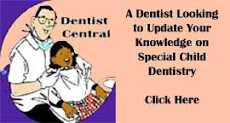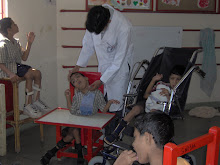
Dr Sharat Chandra Pani
"Ethics is knowing the difference between what you have a right to do and what is right to do"
The care of individuals with special health care needs raises several legal and ethical issues such as the rights of the patient to obtain care, the question of informed consent, and the duties and legal obligations of the dentist. Many dentists are unaware of the legal issues involved in treating special children while others are scared of them. We simplify the process of understanding disability rights, so as to enable you to practice
Informed consent
While all individuals under the age of 18 require consent from parent or a guardian, individuals with certain disabilities may require the services of a guardian even after the age of 18. The National Trust Act of India states that individuals with Autism, Cerebral Palsy, Mental Retardation and MultipleDisabilities require legal guardians to take decisions for them due to an impaired capacity of these individuals for informed decision making. If the parents of the individual are no longer alive, section 14 of the National Trust Act empowers the Local Level Committee headed by the District Collector to appoint legal guardians for persons with the above mentioned disorders.
Disability acts
Many countries in the world have adopted legislations for the protection and empowerment of people with disabilities. In India a large number of acts have been passed to protect the interests of individuals with different disabilities. While all the acts recommend the incorporation of accessibility measures in public establishments, the acts do not make them mandatory. Similarly while the acts call for the equal treatment of an individual it is not mandatory for a dentist to treat these individuals. Thus special care dentistry in India is a field that is often neglected by the general dentist.
Some acts protecting the rights of disabled indiviuals in India include
A detailed knowledge of these acts is not necessary for a dentist, however you can find detailed informaion on these acts by clicking on the links provided above.
We live in a country where people often complain that there is no access to specialist dental care, when at the same time dentists complain there are too many dentists. At times like these it falls upon us to set our fears of the law aside and act upon our ethical duty to provide dental care to every child, regardless of disability.













